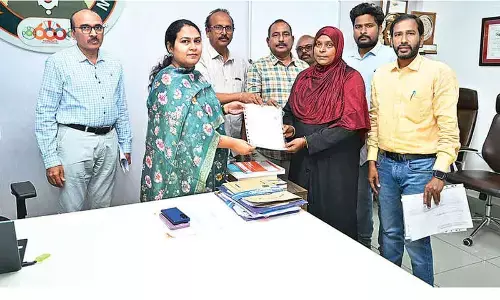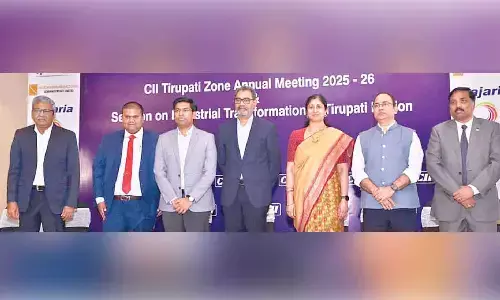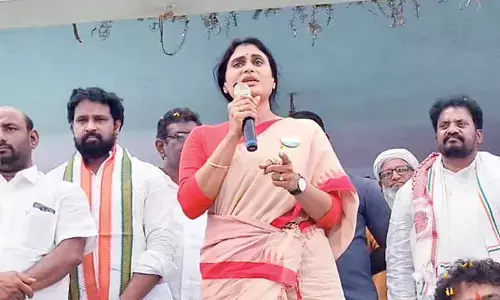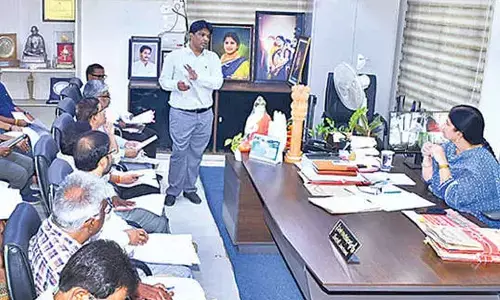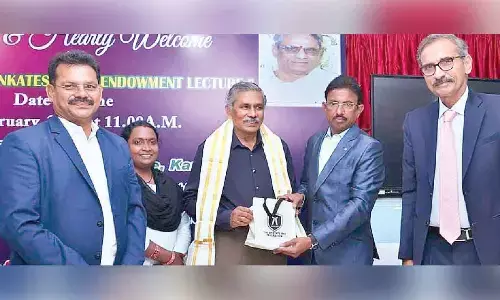India stood for spread of knowledge
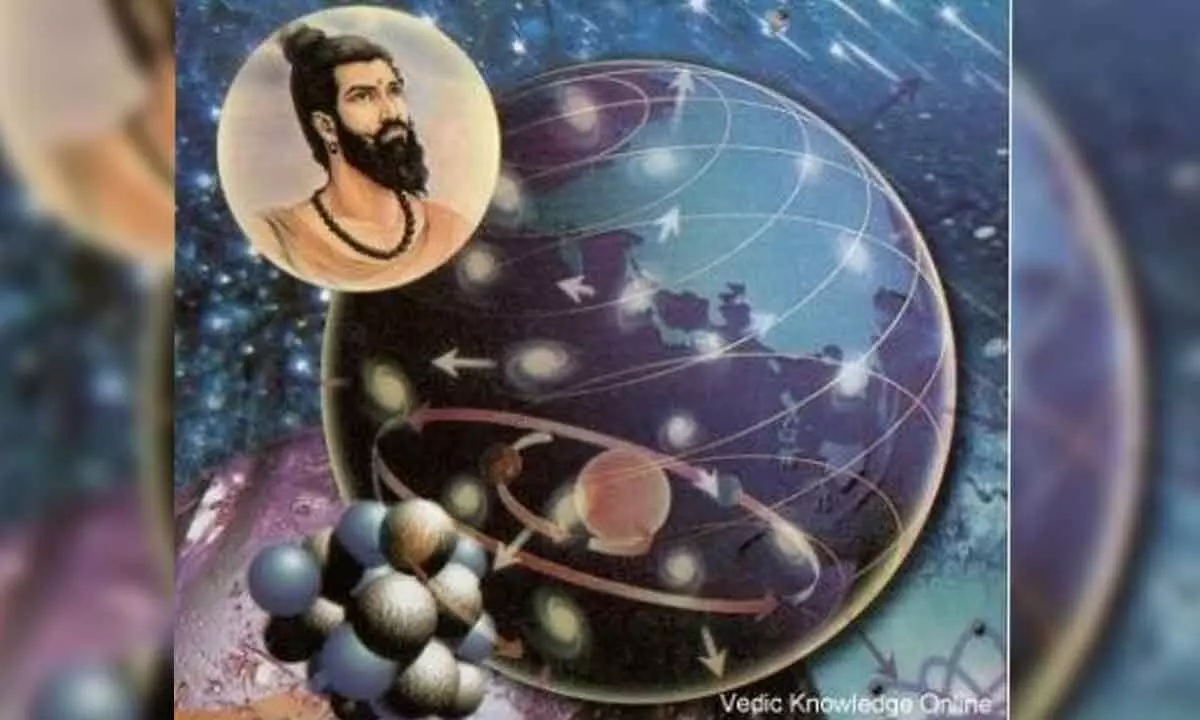
It is a fact of India’s ancient past that this country was the land of sage thinkers who were so close to nature that they could reach empirical deductions without the benefit of later-day scientific experiments and lab research. The conceptualisation of the Solar System, the belief that what existed in the physical plane could disappear into energy and the mandate that life was the product of five elements of nature combining at some point in time, were the ideas that proved to be the forerunners of discovery of atomic structure, scientific equation of conversion of matter into energy and the theory of evolution itself
There is a debate – set off, among other things, by the review of school textbooks in India – revolving around questions like whether young minds should be exposed to divisive and violent phases of the nation’s past when the entire account of history was made available to the researchers and students of socio-political evolution, in any case.
The debate creates geographical and cultural divides in knowledge which are irrational in themselves because knowledge – unlike ‘information’ – is an integral concept applicable to humanity at large.
It is not difficult to imagine that universal knowledge would unite and not divide humanity. ‘Knowledge’ was always meant to be ‘spread’ - unless it fell in the category of secrets that were maintained for the cause of national security or information that had to be kept confidential till such time as was needed for declaring its ownership under the law of Patents in the interest of economic security of the country.
The advent of the IT revolution - with instant communication as its outcome - has enabled a complete bridging of the geographical divide of information and the globalisation of business has further put a stamp on the universalisation of knowledge.
Knowledge enforces transparency. The cultural values of India promoted respect for thinkers, adherence to human welfare and sharing of knowledge for the good of all. With India’s rise on the world stage as a major influencer on issues of war and peace, the importance of ‘history for history’s sake’ - beyond its use for drawing lessons for improving a lot of humanity in the future - needs to be examined further in the national context.
It goes to the credit of the Narendra Modi government that India is referring back to its civilisational moorings to bolster its claim as a major power in the world – fully prepared to opt for mutually beneficial bilateral relationships as the base of its foreign policy.
India abstained from voting on anti-Russia resolutions at the UN on one hand but it also pledged its total commitment to Indo-US strategic friendship, on the other. Prime Minister Modi’s emergence as a world counsel acceptable to all on this conflict of global impact, speaks of the importance India has attained by showing the political will to invoke its civilisational strength in pursuing a path that was deemed to be morally right.
Unfortunately, the political opposition today shuns the word ‘nationalism’, projects rule by the majority as a sign of ‘majoritarianism’ – disregarding the merit of ‘one man one vote’ – and upholds the divisive minority politics that had exposed the country to the shock of Partition and its aftermath.
India has been a land of sages and that is why despite the violence of Muslim invaders it readily accepted the Sufi philosophy that attached importance to Muslim ‘saints’ and Pirs and did not succumb to extremism in the name of Islam. Faith-based conflict and extremist violence have to be put down as India in terms of its civilisational past never subscribed to it. India has always followed the mandate that the rulers must look at all subjects with the same ‘paternal and nurtural’ outlook.
It was not a lack of scientific temperament but the lack of opportunity that held India back earlier. The enormous incentive generated in India for carrying the country economically forward, has flown top down right from Prime Minister Modi himself whose personal drive to push ahead with digitisation, has yielded unprecedented success.
The growth of entrepreneurship, brisk pace of launch of start-ups and a sharp reduction in the seepage of funds of public schemes are new developments and they all reaffirm the fact that India as a nation could lay its own path of growth and ‘modernisation’ given a certain elevation of the standard of governance and a conscious effort to shun political compromise with fiscal discipline. If invoking the civilisational virtues of India helps this up-gradation of national output, this is welcome.
It is a fact of India’s ancient past that this country was the land of sage thinkers who were so close to nature that they could reach empirical deductions without the benefit of later-day scientific experiments and lab research. The conceptualisation of the Solar System, the belief that what existed in the physical plane could disappear into energy and the mandate that life was the product of five elements of nature combining at some point in time, were the ideas that proved to be the forerunners of discovery of atomic structure, scientific equation of conversion of matter into energy and the theory of evolution itself.
No less than the greatest scientist of all times - Albert Einstein- famously said that ‘imagination is more important than knowledge’ thereby emphasising how the human mind had the capacity to look beyond the facts in front and get an insight into what lay ahead.
The thinking sages of India precisely did that and created a civilisational legacy that looked at all humanity as one entity and laid down the universally applicable philosophy of ‘Karma’, the pursuit of the Right Path and redemption without waiting for Rebirth.
The ascendancy of India on the world stage is substantially aided by the cultural values that it upholds – rising above distinctions of group identity, region and mode of worship. It is not wrong to describe India as the ‘mother of democracy’ since the universalisation and ‘openness’ of its civilisational approach transcends any parochial thoughts.
India is truly capable of bridging the East-West divide of knowledge, the North-South gulf of the economy and universally existing distinctions of colour and creed. India works for assimilation, peace and human compassion for this comes naturally to it because of its timeless cultural tradition.
The debate on what represented the true history of India need not become a political distraction – education of young minds should aim at freeing them from thoughts of a divided nation, unnecessary recall of violent periods of history and exclusivist orientation.
Indian democracy must rise above religious and regional divides and focus on uplifting the common man economically, enhancing pride in the civilisational inheritance and keeping issues of national security above party politics. This will be the idea of India in the years ahead.


